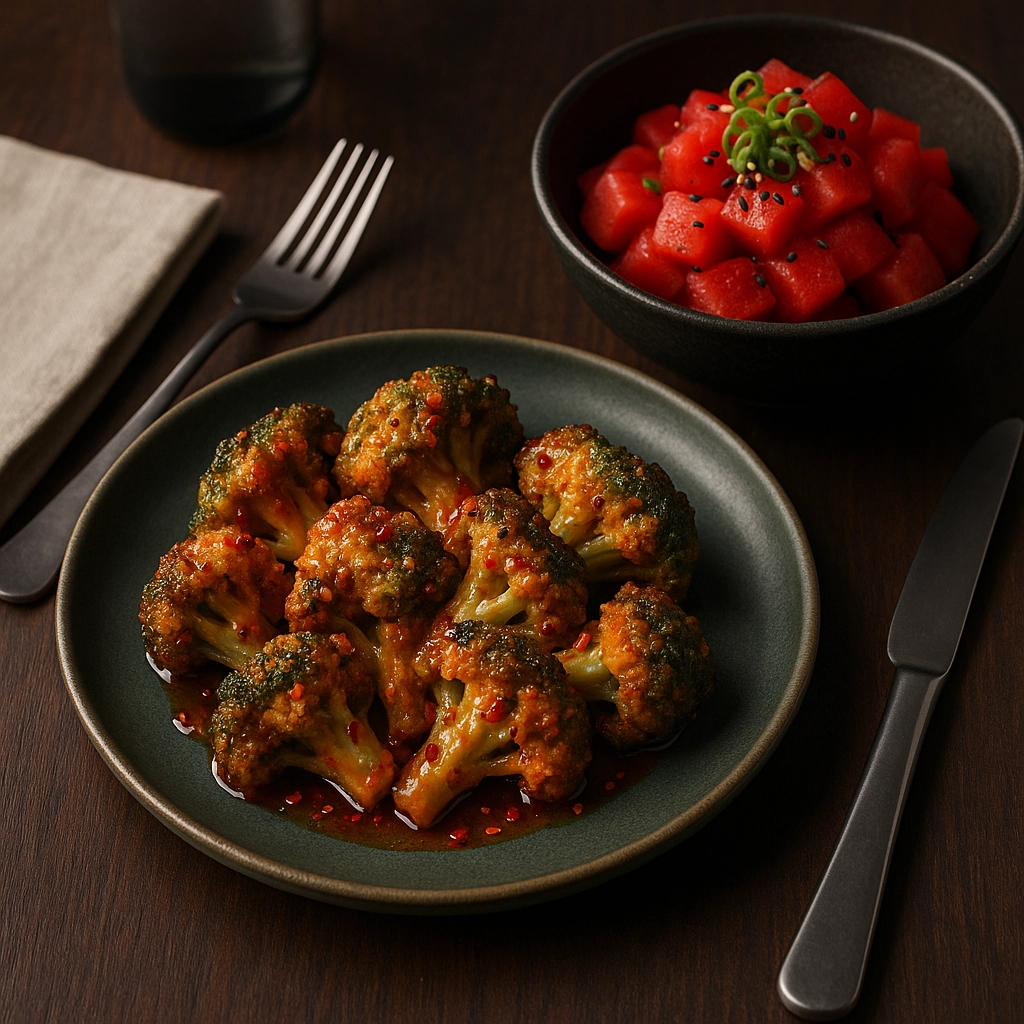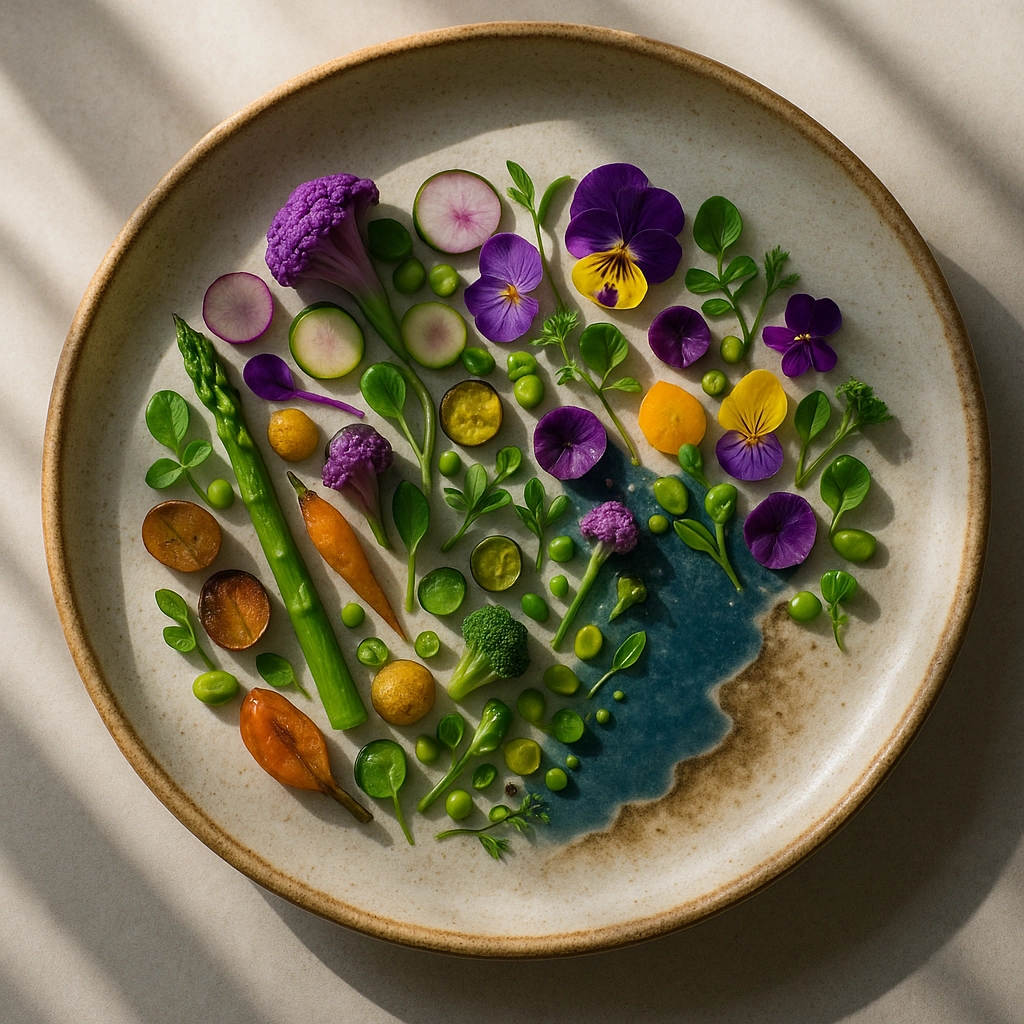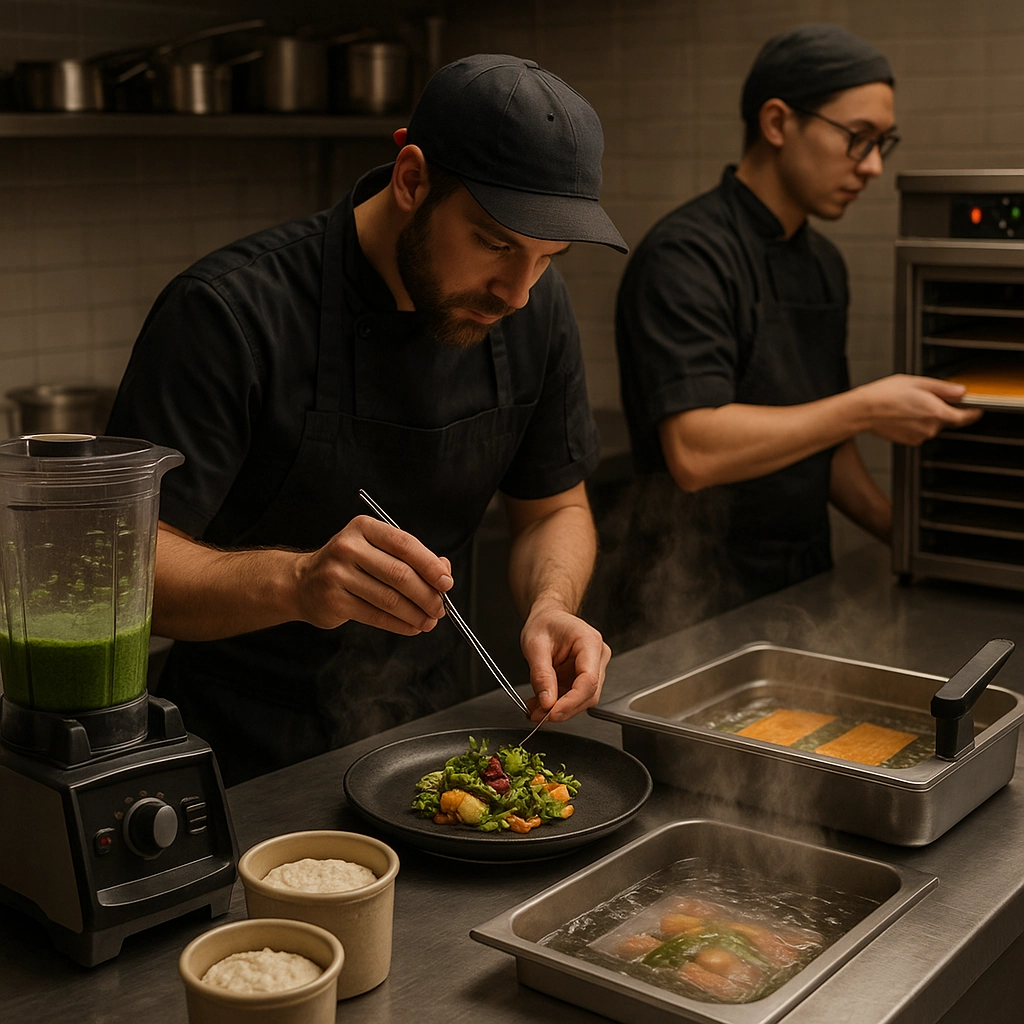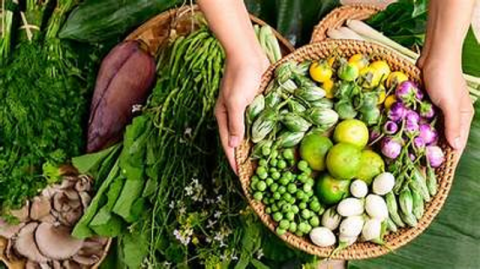The Vegan Revolution in American Fine Dining
The days when vegan diners had to settle for bland side dishes or uninspired salads are firmly behind us. Today, America's culinary landscape has transformed dramatically, with prestigious restaurants across the country embracing plant-based cuisine not as an afterthought, but as a showcase for innovation, flavor, and artistic presentation. From James Beard Award winners to Michelin-starred establishments, chefs are elevating vegan cuisine to unprecedented heights, challenging perceptions about what plant-based food can be.
This evolution reflects more than just accommodating dietary preferences—it represents a fundamental shift in how America's best chefs approach ingredients, sustainability, and creative expression. Let's explore the restaurants leading this green revolution and the remarkable vegan dishes that are becoming destination-worthy in their own right.
Fine Dining Vegan Establishments
Crossroads Kitchen (Los Angeles & Las Vegas)
When talking about vegan fine dining in America, the conversation must begin with Chef Tal Ronnen's Crossroads Kitchen. As the first plant-based restaurant to earn a Michelin star, Crossroads has redefined what vegan cuisine can achieve at the highest levels.
Their Artichoke Oysters with kelp caviar, oyster mushroom cream, and crispy oyster leaves represent the perfect example of Ronnen's approach: creating sophisticated dishes that pay homage to traditional favorites without attempting to be direct imitations. The artichoke's natural brininess evokes the ocean while the carefully constructed textures deliver a multi-dimensional experience.
The restaurant's Vegan Spaghetti Carbonara has become legendary for its innovative egg yolk substitute made from yellow tomatoes and nutritional yeast that captures the silky, rich quality of the traditional version. The "pancetta" component, crafted from smoked mushrooms, delivers the savory depth that makes the original so craveable.
"We're not trying to create fake meat dishes," explains Chef Ronnen. "We're celebrating vegetables on their own terms while using techniques that create satisfying, complex flavors that happen to be plant-based."
PLANTA (Chicago, Miami, New York)
Under the direction of Chef David Lee, PLANTA has expanded from a Toronto sensation to multiple U.S. locations, each showcasing a stylish, upscale approach to plant-based dining that has attracted celebrities and food enthusiasts alike.
The Chicago location's Bang Bang Broccoli has developed a cult following for good reason. The florets are lightly battered, fried to perfect crispness, then tossed in a sweet-spicy sauce that balances heat with subtle sweetness. It's a dish that demonstrates how proper technique can transform a humble vegetable into something extraordinary.
PLANTA's Watermelon Poke represents Chef Lee's innovative approach to plant-based dining. Rather than attempting to mimic fish with processed alternatives, he marinates compressed watermelon in tamari, sesame oil, and rice vinegar, creating a dish that honors poke traditions while establishing its own identity.

Vedge (Philadelphia)
Husband-and-wife team Rich Landau and Kate Jacoby have created in Vedge what many critics consider America's premier vegetable restaurant. Housed in a historic mansion in Philadelphia, Vedge approaches vegetables with the reverence typically reserved for prime cuts of meat.
Their Rutabaga Fondue exemplifies their approach—transforming the humble root vegetable into a velvety, rich dip served with pretzel bread, pickled vegetables, and charred onions. The dish challenges preconceptions about what vegetables can become in skilled hands.
The Wood-Roasted Carrot is another signature creation, featuring a thick-cut carrot slow-roasted until it develops a steak-like exterior and tender interior, served with pumpernickel purée, carrot mustard, and carrot tops. This deceptively simple dish showcases the restaurant's philosophy of letting vegetables be the star rather than trying to make them mimic animal products.
Traditional Restaurants with Outstanding Vegan Options
Eleven Madison Park (New York City)
When Chef Daniel Humm announced that his three-Michelin-starred restaurant would go entirely plant-based in 2021, it sent shockwaves through the culinary world. Today, EMP offers an entirely vegan tasting menu that stands as one of the most ambitious culinary projects in America.
The Tonburi with Peas and Baby Lettuce exemplifies Humm's refined approach. Tonburi, often called "land caviar," is paired with seasonal peas and delicate lettuces in a dish that celebrates texture and subtle flavor development rather than trying to overwhelm with richness.
Their Roasted Eggplant with Tomato and Coriander demonstrates how traditional cooking techniques can transform plant ingredients. The eggplant undergoes a three-day process of salting, smoking, dehydrating, and finally roasting to develop a complexity that rivals any animal protein.
Gramercy Tavern (New York City)
While not exclusively vegan, this New York institution under Chef Michael Anthony has embraced plant-forward cooking with remarkable results. The restaurant's vegetable tasting menu has become a destination experience for plant-based diners seeking fine dining excellence.
The Smoked Carrots with Chickpea Hozon exemplifies Anthony's collaboration with fermentation expert David Chang. The hozon (a fermented chickpea paste) provides complex umami notes that complement the sweet smokiness of the heirloom carrots, creating a dish with remarkable depth.
Their Mushroom Tea with Root Vegetables offers a masterclass in extracting maximum flavor from plants. The clear, intensely flavorful broth showcases Anthony's talent for finding the essential character of ingredients through careful technique.
Atelier Crenn (San Francisco)
Although Dominique Crenn's three-Michelin-starred restaurant is not entirely vegan, her commitment to sustainability led her to remove land animals from the menu in 2019. Her plant-based creations demonstrate the artistic possibilities of vegan fine dining.
The Garden of Coastal Vegetables presents a stunning visual and gastronomic experience, with over 30 different vegetables, herbs, flowers, and seeds arranged to evoke the Northern California coastline. Each component is prepared individually using techniques that maximize flavor and textural contrast.

Regional Vegan Standouts
Plant Food + Wine (Venice, CA)
Matthew Kenney's flagship restaurant offers sophisticated, seasonally-driven vegan cuisine with a California sensibility. The restaurant's gorgeous patio setting enhances the fresh, vibrant nature of the food.
Their Heirloom Tomato and Zucchini Lasagna with macadamia ricotta and pistachio pesto exemplifies Kenney's raw food expertise, creating complex textures and flavors without conventional cooking. The macadamia ricotta achieves a remarkable creaminess that satisfies even cheese enthusiasts.
The King Oyster Mushroom Scallops with parsnip purée and sea beans demonstrate Kenney's skill at transformation. The thick-cut mushroom stems are seared to develop a caramelized exterior while maintaining a tender center, creating a textural experience remarkably similar to sea scallops.
Fancy Plants Kitchen (Chicago)
Chef Kevin Schuder's upscale vegan restaurant has quickly become a Chicago favorite for its creative approach to plant-based dining. Unlike many vegan establishments, Fancy Plants embraces the challenge of creating sophisticated dishes that appeal to all diners.
Their Lion's Mane Crab Cakes showcase Schuder's ability to work with specialty mushrooms. The delicate, seafood-like texture of lion's mane mushrooms is enhanced with seaweed and Old Bay seasoning, creating a compelling alternative to traditional crab cakes, served with cashew remoulade.
The Truffle Risotto features carefully sourced carnaroli rice cooked to perfect texture, enriched with housemade cashew cream, and finished with seasonal truffles. It's a dish that demonstrates how plant-based ingredients can create the luxurious mouthfeel traditionally achieved through dairy.
Planta Queen (Multiple locations)
This Asian-inspired offshoot of the Planta brand specializes in plant-based interpretations of sushi, dumplings, and wok-fired dishes. Their sleek, contemporary spaces attract a stylish crowd seeking both healthy options and bold flavors.
The Spicy "Tuna" on Crispy Rice transforms watermelon through multiple techniques—compressing, marinating, and slight dehydration—to create a convincing alternative to raw tuna. Paired with perfectly crisped rice cakes and spicy mayo, it satisfies the textural and flavor expectations of the original.
Their Udon Noodles with Truffle Cream showcases how plant-based cooking can achieve luxurious richness through cashew-based cream infused with truffle. The handmade noodles provide the perfect chewy canvas for the silky sauce.
Innovative Techniques Defining Modern Vegan Cuisine
What makes today's vegan fine dining so remarkable is the technical innovation behind the dishes. Chefs are employing advanced techniques that go far beyond simple substitution:
-
Fermentation: Restaurants like Vedge and Eleven Madison Park use fermentation to develop complex umami flavors in plant ingredients.
-
Molecular Gastronomy: Techniques like spherification and foams allow chefs to create new textures impossible with traditional methods.
-
Specialized Equipment: The use of commercial dehydrators, high-powered blenders, and precision temperature control has expanded what's possible with plant ingredients.
-
Housemade Plant Milks and Cheeses: Rather than relying on commercial alternatives, top restaurants create their own nut-based creams and cheeses tailored to specific dishes.

The Future of Vegan Fine Dining
The explosion of high-end vegan dining options reflects broader shifts in American food culture. As environmental concerns grow and health consciousness increases, we can expect even more traditional restaurants to expand their plant-based offerings. Several trends point to continued evolution:
- Hyperlocal Sourcing: Restaurants developing direct relationships with small farms for specialty vegetables and exclusive varieties
- Ancient Grains Revival: Exploration of heritage varieties like freekeh, fonio, and amaranth for their unique flavors and textures
- Vegetable Aging: Application of meat-aging techniques to vegetables to develop concentrated flavors
- Botanical Mixology: Integration of vegetable components into creative cocktail programs
Conclusion
America's top restaurants are redefining what vegan cuisine can be, moving far beyond simple substitutions to create dishes that celebrate plants on their own terms. Whether through dedicated vegan establishments or traditional restaurants expanding their plant-based offerings, chefs are applying their considerable technical skill and creativity to vegetables, fruits, grains, and legumes with remarkable results.
The dishes highlighted here represent not just accommodations for vegan diners but ambitious culinary creations worthy of any food enthusiast's attention. As techniques continue to evolve and more chefs embrace the creative possibilities of plant-based cooking, we can expect the line between "vegan restaurants" and simply "great restaurants" to continue blurring—a development that benefits diners of all persuasions.
For those interested in exploring the cutting edge of American cuisine, these vegan dishes offer some of the most exciting and innovative dining experiences available today. The plant-based revolution in fine dining isn't coming—it's already here, and it's delicious.
Written by Michael Politz, Author of Guide to Restaurant Success: The Proven Process for Starting Any Restaurant Business From Scratch to Success (ISBN: 978-1-119-66896-1), Founder of Food & Beverage Magazine, the leading online magazine and resource in the industry. Designer of the Bluetooth logo and recognized in Entrepreneur Magazine's "Top 40 Under 40" for founding American Wholesale Floral. Politz is also the founder of the Proof Awards and the CPG Awards and a partner in numerous consumer brands across the food and beverage sector.








